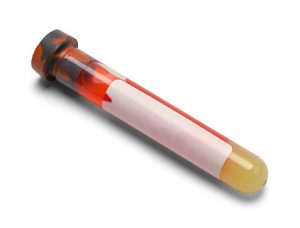Tips for Houston Defendants After a DWI Test Refusal
 Texas Vehicle Code Section 724
provides rules on implied consent. Under
this law, an individual driving or
operating a boat within the state gives
consent to chemical testing to determine
if the individual is breaking the law by
driving while driving. If a defendant
refuses to submit to a test when there
is probable cause of impairment, this
can result in a license suspension. The
refusal to submit to the testing may
also be used against defendant in
subsequent criminal proceedings,
including in a trial for impaired
driving.
Texas Vehicle Code Section 724
provides rules on implied consent. Under
this law, an individual driving or
operating a boat within the state gives
consent to chemical testing to determine
if the individual is breaking the law by
driving while driving. If a defendant
refuses to submit to a test when there
is probable cause of impairment, this
can result in a license suspension. The
refusal to submit to the testing may
also be used against defendant in
subsequent criminal proceedings,
including in a trial for impaired
driving.
When you are facing drunk driving charges and the prosecutor is going to use your BAC test refusal against you, it is important to talk with a DWI defense lawyer about what your options are for defending yourself. You do not want the jury to be convinced of your impairment by your refusal to take the test, and your attorney should help develop an effective legal strategy to try to ensure this does not happen.
Defenses to Drunk Driving Charges After Refusing to Take a BAC Test
In every drunk driving case, it is important to develop a strategic plan for how you will defend yourself from accusations you operated your vehicle while impaired. In cases where you have refused to take a breathalyzer test, an explanation for the refusal generally must be incorporated in some way into the defense because the prosecutor may submit your refusal to provide proof you knew you were too impaired to be behind the wheel.
A strategic defense must be crafted that is specific to the facts of your case and that provides you with compelling arguments to make to a jury. A Bar Association article addressed some of the issues paramount to creation of an effective DUI defense when you have declined to take a chemical test in spite of implied consent law.
One of the best outcomes after a chemical test refusal is to successfully motion to suppress evidence of the refusal. You have the right to be informed of the Texas implied consent laws and to be alerted to the fact declining the testing will result in a license suspension and can be used against you. If you were not warned of the consequences of refusing to take the chemical test, it is possible the evidence obtained may be considered inadmissible in court. The prosecutor will not be able to present to the jury the fact you refused to take the test.
If evidence cannot be suppressed, then there are different approaches to take to try to ensure the prosecutor cannot successfully prove you're guilty by showing you did not take submit to the testing.






